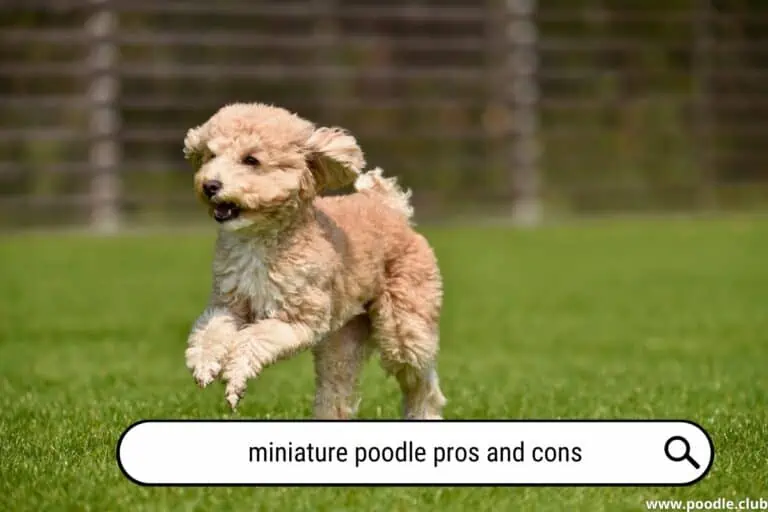How Smart Are Toy Poodles [Facts]
Tiny in size, yet colossal in smarts – that’s the world of Toy Poodles for you. Celebrated for their dazzling intellect and rapid-fire learning abilities, these petite powerhouses captivate hearts and minds alike. Ranking high in the canine intelligence stratosphere, they are more than just delightful companions – they’re brainy buddies who adapt and thrive in diverse environments.
Witness the magic of their intellectual brilliance, as they master commands and tricks at an early age, seamlessly integrating into various settings. So, buckle up, and join us in unraveling the fascinating intellect of Toy Poodles – the diminutive dogs with towering intellect.
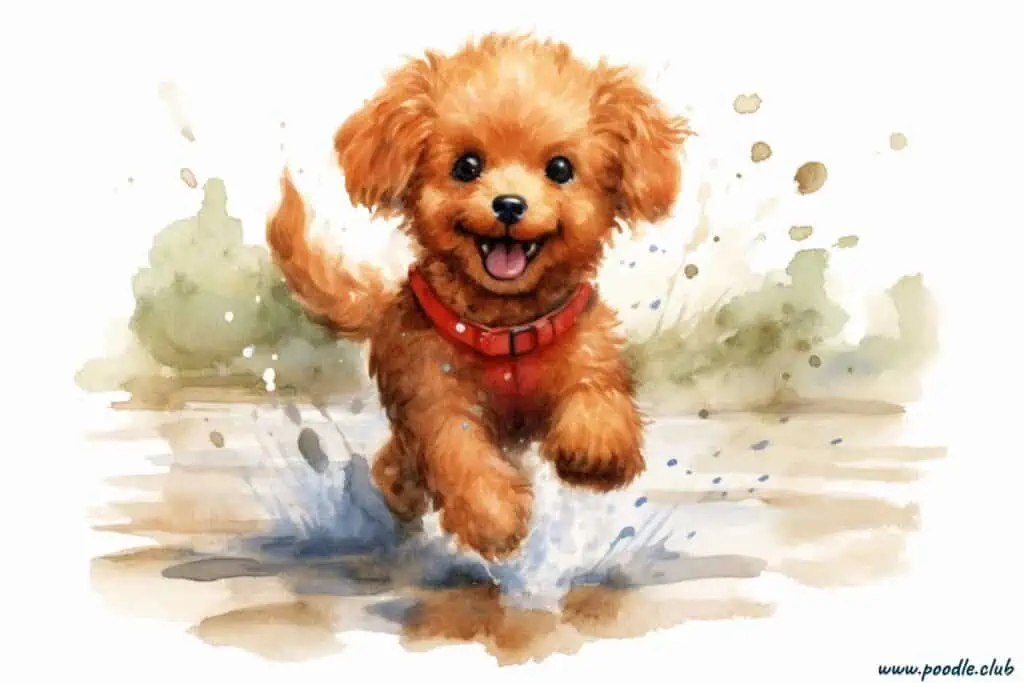
Their intellectual prowess can be seen in their ability to grasp commands and tricks at an early age.
For instance, Chanda-Leah, a seven-and-a-half-week-old puppy, quickly learned simple commands like sit and stay, a testament to the breed’s inherent intelligence found in this book.
These whizz-kid canines not only excel in obedience and agility but can also provide valuable emotional support. For example, when integrated into a classroom of children with severe emotional disorders, a toy poodle demonstrated its ability to positively impact the children’s emotional development. This showcases just how smart and versatile toy poodles can be, making them truly exceptional companions for people from all walks of life.
Understanding Toy Poodles
Breed History
The Toy Poodle’s roots trace back to Germany, where they were initially bred as water retrievers. Eventually, the breed gained popularity in France and became the country’s national dog. Over time, Toy Poodles traveled to America, where they have continued to win hearts as family pets. It’s essential to note that there are three types of Poodles: Standard, Miniature, and Toy. The primary difference between them is their size.

Size and Appearance
Toy Poodles are the smallest of the three Poodle varieties, standing at no more than 10 inches tall and weighing 4 to 6 pounds. Despite their size, they are known for their intelligence and agility. Their compact stature makes them perfect companions for people with limited living spaces or those who want a portable pet.
Coat and Grooming Needs
A distinctive feature of Toy Poodles is their hypoallergenic coat, which makes them an ideal choice for people with allergies. Poodle coats come in various colors, ranging from dark to light shades, while their texture can be curly or corded.
PuppySpot is a reputable dog marketplace where you can browse and find compatible puppies right from the comfort of your home. They have placed over 200,000 puppies into homes in the US!
Grooming is a crucial aspect of owning a Toy Poodle, as their coat tends to require regular brushing to prevent matting. Toy Poodles’ hair is typically trimmed into a “Poodle cut,” which not only adds a dash of style but also meets the AKC breed standard.
Although they are small, Toy Poodles pack quite a punch in terms of intelligence, agility, and charm. With their rich history and unique appearance, these dogs quickly become the center of attention wherever they go. Remember, though, that with great fuzz comes great responsibility – proper grooming and maintenance are essential for keeping your Toy Poodle’s coat in top shape!
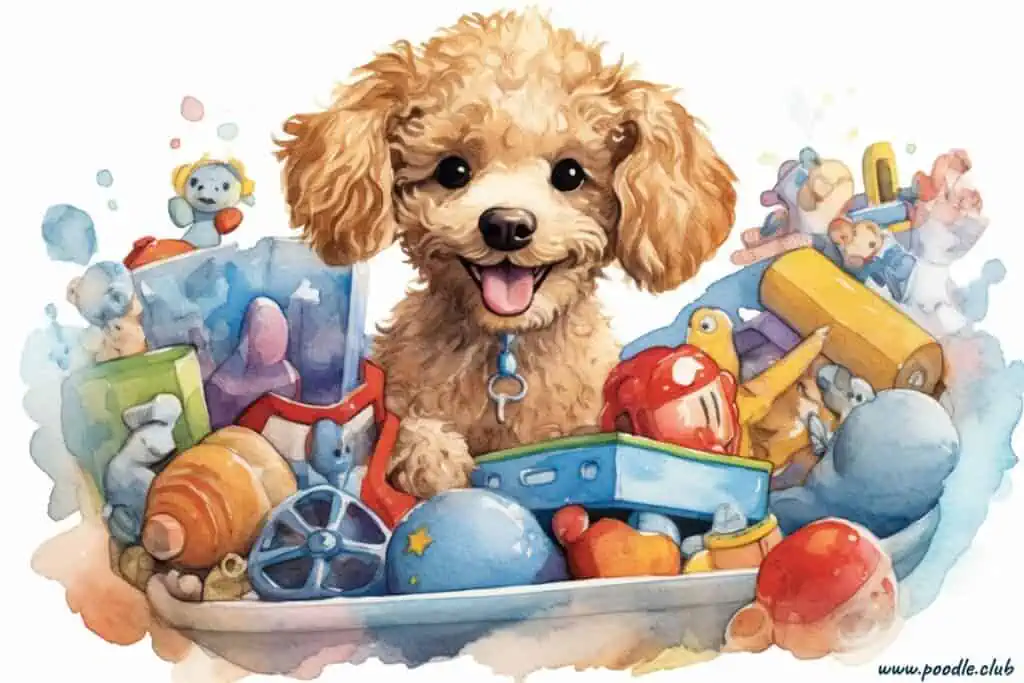
Intelligence and Trainability
Obedience and Skills
Toy poodles are known for their intelligence, ranking as the second-most intelligent dogs, just after border collies. With their exceptional intelligence comes their ability to acquire new skills and behaviors quickly, making them highly obedient pets. As their innate ability to perceive their environment and react to it is impressive, it’s not uncommon to see a toy poodle perform outstanding tricks during a dog show.
The temperament of a toy poodle can have some effect on its obedience level, but consistent training and reinforcement from their owner can lead to a well-behaved canine companion.
Ease of Training
Toy poodles are often praised for being easy to train. One reason for this is their eagerness to please their owner, making them highly motivated to learn and adapt. Furthermore, their high intelligence allows them to easily make connections between commands and desirable behavior.
When training a toy poodle, it’s important to use positive reinforcement and be patient with the process. Although they are quick learners, taking the time to create a strong bond between the dog and the trainer will result in the best training outcomes. Be prepared to offer plenty of treats and praise to ensure success!
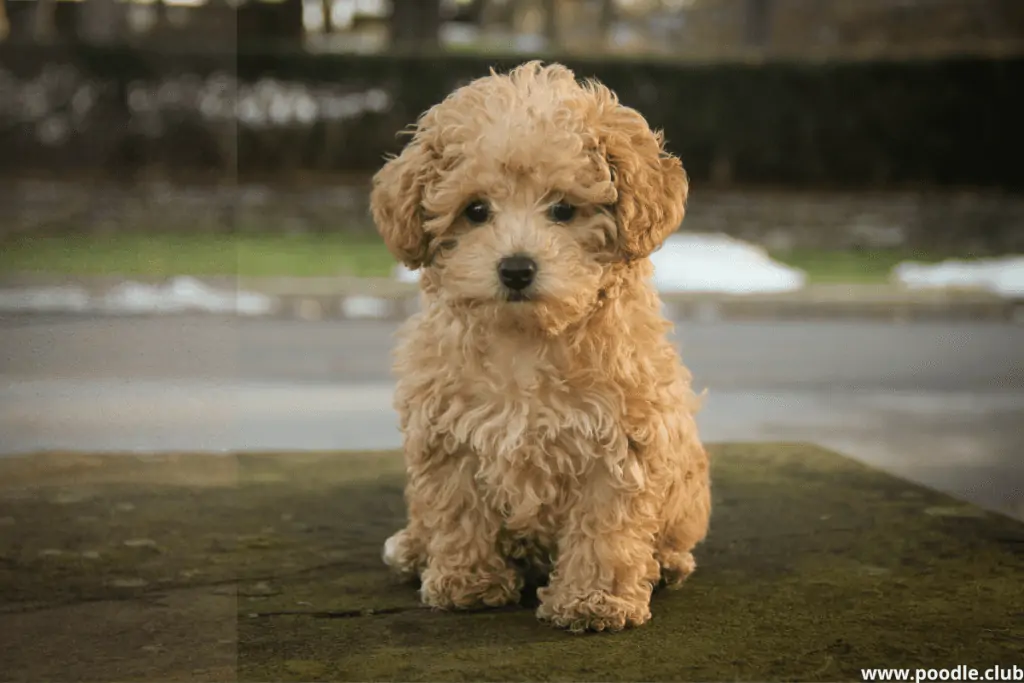
Mental Stimulation
Mental stimulation for toy poodles is crucial, as their high intelligence means they need activities to stay engaged and avoid boredom. A bored poodle can become stressed, which might lead to undesirable behaviors. Providing mentally engaging activities, such as puzzle toys, advanced obedience training, or even teaching them new tricks will keep their minds sharp and spirits high.
Remember, toy poodles aren’t only gifted with intelligence, but they also possess a dash of humor in their character. So, don’t be surprised if their antics bring a smile to your face as they try to outsmart you!
Maintaining a consistent training routine and incorporating various forms of mental stimulation will ensure that your toy poodle remains not just a smart and obedient companion, but a happy and well-balanced one as well.
Behavior and Personality
Interactions with Children
Toy poodles are known for their friendly and affectionate nature, making them great playmates for children. They’re gentle and patient, even with the smallest of kids. However, it’s crucial to teach children to handle these petite pups with care, as their small size makes them more fragile. With proper supervision and guidance, toy poodles can quickly become a child’s best friend.
Socialization
Early socialization is essential for Toy Poodles to become well-rounded, confident adults. They are naturally curious and intelligent dogs, eager to learn and explore new environments. Puppy obedience classes and regular exposure to a variety of people, places, and animals help in developing a well-adjusted toy poodle that can fit seamlessly into any home.
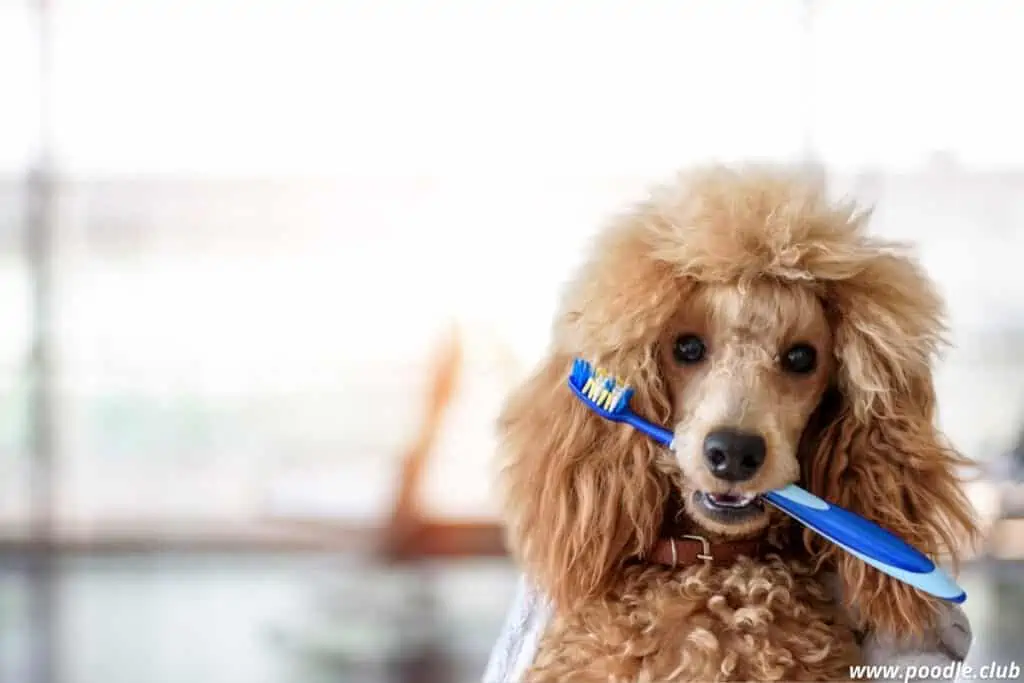
Companionship
Toy poodles are well-suited for companionship, thanks to their eager-to-please and amiable personalities. They often form strong bonds with their family members and can be quite sensitive to their emotional cues. Don’t be surprised if your toy poodle wants to snuggle on your lap while you watch TV or insists on being your personal furry hot water bottle in bed. They are, indeed, excellent cuddle buddies.
Watchdogs
Don’t let the small size and charming appearance of toy poodles fool you; they can be outstanding watchdogs. They may not be able to physically protect their family, but they’re always on high alert, keen to detect any suspicious activity. Their sharp senses and knack for barking the moment something’s amiss make them dependable four-legged alarm systems.
In a nutshell, toy poodles are exceptional companions that can effortlessly adapt to various households. Their charming personality, cleverness, and versatility make them a popular choice for families, singles, and seniors alike.
Health Concerns and Lifespan
When it comes to toy poodles, they are known for their intelligence and longevity. However, there are certain common health issues and preventative measures that can help ensure a long, healthy life for these adorable dogs.
Common Health Issues
Though toy poodles are generally healthy, they can be prone to certain health issues, such as:
- Allergies: Like all dogs, toy poodles may suffer from environmental or food allergies. Symptoms include itching, redness, and skin infections.
- Progressive Retinal Atrophy (PRA): PRA affects the retina and can lead to blindness. Regular eye check-ups can help detect this issue early.
- Patella Luxation: This issue occurs when the kneecap is dislocated, causing discomfort and, in severe cases, lameness. It can be managed with proper exercise and weight management.
- Von Willebrand’s Disease: A genetic blood clotting disorder, Von Willebrand’s disease can lead to excessive bleeding after injury or surgery. It’s essential to inform the vet about this condition before any surgical procedures.
- Chronic Ear Infections: Due to their floppy ears, grooming, and maintaining ear hygiene is vital to keep ear infections at bay.

Preventative Measures
To ensure a healthy life for your toy poodle, consider the following preventative measures:
- Grooming: Regular grooming is essential to avoid matting and prevent skin issues. It also helps to examine your poodle’s skin, ears, and eyes for early signs of health problems.
- Exercise: While toy poodles may not have the same exercise needs as retrievers, a daily walk and playtime can help maintain a healthy weight and prevent joint issues.
- Routine Vet Visits: Regular check-ups can help catch any health concerns early and provide timely treatment.
- Pet Insurance: Investing in pet insurance can assist in covering the cost of potential health issues and ensure proper care.
Remember, maintaining your toy poodle’s health is a team effort between you, your poodle, and your vet. Proper care and attention can go a long way in ensuring a healthy and happy life for your furry friend. And who wouldn’t want their little Einstein to enjoy a long, wagging-tail, problem-free life?
Choosing and Caring for a Toy Poodle
Toy Poodles are not only adorable, but they’re also known for their intelligence and loyalty. In this section, we’ll guide you through selecting the right breeder, keeping your poodle happy and healthy through exercise and nutrition, and understanding their unique personality traits.
Selecting a Breeder
Finding a reputable breeder is crucial to ensure your Toy Poodle is healthy and well-adjusted. Look for a breeder who prioritizes health, temperament, and genetics over appearance. Don’t be afraid to ask questions and make sure they’re knowledgeable about the breed’s history. Fun fact: Poodles were originally bred as waterfowl retrievers, so don’t be surprised if your new pup has a flair for fetching!
Daily Exercise and Play
No lapdog here! Though small, Toy Poodles are energetic and require daily walks and play sessions. A walk around the neighborhood or a trip to a dog park will do wonders for their physical and mental well-being. In fact, exercising their brilliant minds is just as important as keeping them physically fit. Puzzle toys, obedience training, and agility courses can be great ways to engage their intellect.
Nutrition and Treats
Feeding your Toy Poodle a balanced diet is essential. Choose high-quality dog food formulated specifically for small breeds. Always remember to consult your vet for guidance on portion sizes and feeding schedules.
When it comes to treats, moderation is key. Be mindful not to overindulge your pup, as too many treats can lead to weight gain and health issues. Stick to healthy options like pieces of fresh fruits and veggies—with the exception of grapes and avocados, which can be harmful to dogs.
Remember, bringing a Toy Poodle into your life will require patience, care, and companionship. In return, you’ll have your very own furry Elvis (did you know he was a big fan of Poodles?) as a loyal and loving friend for years to come.



![When Do Toy Poodles Stop Growing [Key Milestones]](https://poodle.club/wp-content/uploads/2023/05/when-do-you-poodles-stop-growing-768x512.webp)

